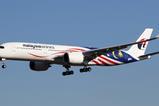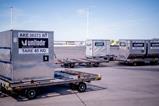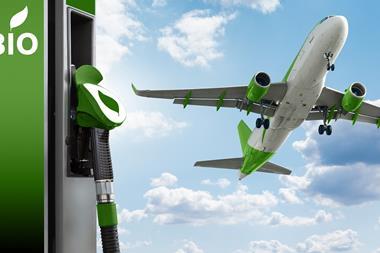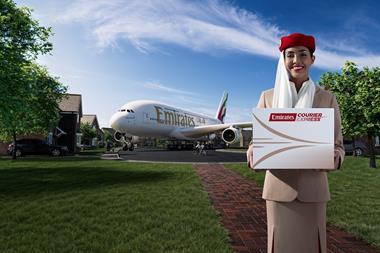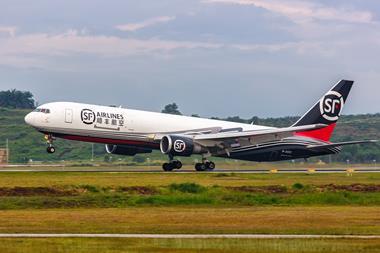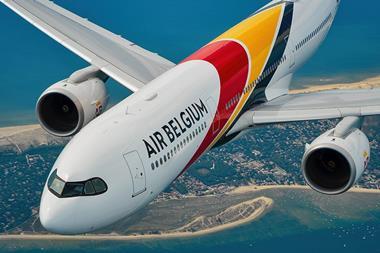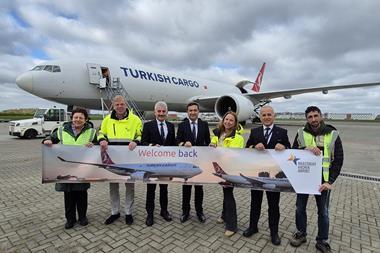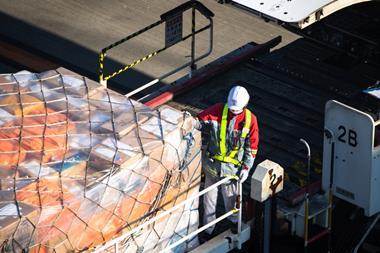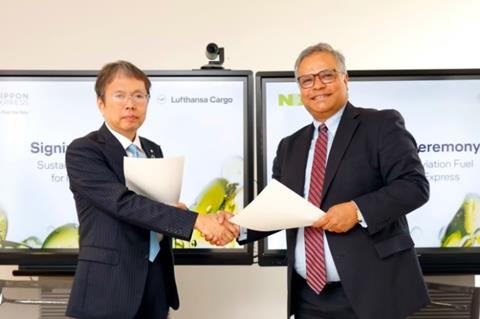
Nippon Express Europe has agreed to use Sustainable Aviation Fuel (SAF) for airfreight shipments with Lufthansa Cargo "in the future".
The companies said they have "contractually agreed to advocate the use of Sustainable Aviation Fuel (SAF) when transporting airfreight shipments".
Japanese logistics specialist Nippon has not confirmed when it will begin using SAF for its shipments with Lufthansa or how much it would purchase, but the companies said the SAF will enable the Nippon Express Group to achieve emissions savings of approximately 3,150 tons within one year.
Additionally, the agreement reached with Lufthansa Cargo includes contributing to certified climate protection projects for the so-called well-to-tank emissions that arise during the production and supply of SAF.
"We have enjoyed a trusting long-standing relationship with Nippon Express Europe as a Global Partner," said Ashwin Bhat, chief executive of Lufthansa Cargo. "We appreciate working jointly with Nippon Express Europe also on sustainability goals that are important to both of us.
"Every player in the logistics industry has a model here, and only together can we succeed in making our business more environmentally friendly along the entire supply chain. The more Sustainable Aviation Fuel is used in the transportation of goods by air freight, the more likely we are to succeed in moving away from fossil fuels, making the entire air freight industry more sustainable."
Shinichi Kakiyama, managing director of Nippon Express Europe, said: "We at the Nippon Express Group remain mindful of the environmental effect of the increasing demand for airfreight. We fully acknowledge this reality, and we must move quickly to take action to slow global warming.
"This agreement to advocate using SAF represents a step in the right direction on the way to a greener future. Together with Lufthansa Cargo, we are honored to embark on this journey to meet our sustainability goals and fulfil our ongoing commitment to combat climate change."
The Nippon Express Group has set the goal of a 50% reduction in SCOPE 1 and 2 emissions by 2030 compared to 2013 as a response to climate change, and of contributing to the realisation of a carbon-neutral society by 2050.
Nippon Express Co., Ltd. aims to reduce emissions by 350,000 tons by 2023, equivalent to a 3o% reduction from 2013 levels. In May 2023, Nippon Express Holdings submitted a Letter of Commitment to be certified as a Science Based Targets (SBT) company, and the entire group is working together to achieve a carbon neutral society by 2050.
Lufthansa Cargo said it is committed to the United Nations' Sustainable Development Goals and is actively advancing five selected sustainability goals, including ‘Climate Action’. The cargo airline also supports the Lufthansa Group's ambitious CO₂ reduction targets: the aviation group aims to halve net CO₂ emissions by as early as 2030 compared to 2019.
Lufthansa Group is pursuing a clearly defined reduction path that has been validated by the so-called ‘Science Based Target Initiative’ (SBTi). This makes the Lufthansa Group the first airline group in Europe with a scientifically based CO₂ reduction target in line with the goals of the Paris Climate Agreement of 2015.
https://www.aircargonews.net/policy/environment/lufthansa-cargo-goes-greener-with-fuel-saving-technology-for-b777fs/
https://www.aircargonews.net/airlines/lufthansa-cargo-aims-to-cut-co2-with-lightweight-cargo-pallet-nets/
https://www.aircargonews.net/airlines/lufthansa-cargo-and-kintetsu-in-saf-agreement/








